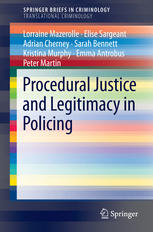

Most ebook files are in PDF format, so you can easily read them using various software such as Foxit Reader or directly on the Google Chrome browser.
Some ebook files are released by publishers in other formats such as .awz, .mobi, .epub, .fb2, etc. You may need to install specific software to read these formats on mobile/PC, such as Calibre.
Please read the tutorial at this link: https://ebookbell.com/faq
We offer FREE conversion to the popular formats you request; however, this may take some time. Therefore, right after payment, please email us, and we will try to provide the service as quickly as possible.
For some exceptional file formats or broken links (if any), please refrain from opening any disputes. Instead, email us first, and we will try to assist within a maximum of 6 hours.
EbookBell Team

4.1
100 reviewsThis brief focuses on the “doing” of procedural justice: what the police can do to implement the principles of procedural justice, and how their actions can improve citizen perceptions of police legitimacy. Drawing on research from Australia (Mazerolle et al), the UK (Stanko, Bradford, Jackson etc al), the US (Tyler, Reisig, Weisburd), Israel (Jonathon-Zamir et al), Trinidad & Tobago (Kochel et al) and Ghana (Tankebe), the authors examine the practical ways that the police can approach engagement with citizens across a range of different types of interventions to embrace the principles of procedural justice, including:
· problem-oriented policing
· patrol
· restorative justice
· reassurance policing
· and community policing.
Through these examples, the authors also examine some of the barriers for implementing procedurally just ways of interacting with citizens, and offer practical suggestions for reform. This work will be of interest for researchers in criminology and criminal justice focused on policing as well as policymakers.